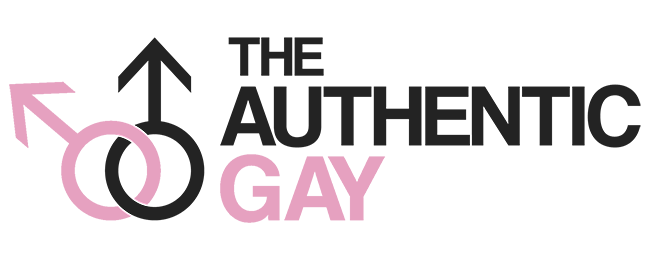Why I Created this Blog: Writing from Intrinsic Motivation

I graduated college a little over a year ago with the excitement of opportunity most recent graduates have. I was thrilled with the prospects of finally having a steady income, supporting myself, taking pride in my independence, and developing a feeling of autonomy in my life and pursuits. Although I was able to manifest many of these goals- I support myself in a city on the other side of the country from my family, I bought myself my first car (a cute Mini Cooper s), and I have had success in switching jobs when I found myself dissatisfied with work or compensation, I have felt a lack of a creative outlet to motivate me and give me a sense of “purpose.”
When I was younger these outlets were a collection of time-consuming and learning-involved activities. I was trained in classical piano and practiced 1-4 hours/day until college. I played sports, was involved in youth group and college club leadership, volunteered for various nonprofits, and excelled in my academic endeavors, all to aid in reaching one goal- graduate from an excellent college. Now that I have reached that goal, I feel anxiety when I contemplate my future. What am I working toward? What motivates me? How can I redefine personal success?
I actually did learn something from college
I realized rather quickly during my college years that my academic focus was not a career trajectory I envisioned for my future. I was lucky enough to go to an excellent research university (UCLA), and due to my enduring interest in human behavior and motivation, I majored in Psychology with a Cognitive Science minor. I volunteered as a research assistant in labs, produced several of my own research projects, and collaborated with professors and graduate students as I acquired an academic approach to research and writing.
It was through my experience learning academically-structured approaches to research, writing, and discovering the inherent bureaucracy of large research universities that I decided not to pursue graduate school specific to behavioral research. However, this was conflicting for me. I was still fascinated by human motivation and dissecting behavior, but the heavily structured academic approach was not appealing to me. In my mind at the time, academic research was the only way to be successful. I had difficulty imagining any other career in information acquisition as legitimate.
Looking back, this is the most important thing I have learned from college, but it took me a year after graduating to realize it. I learned an invaluable practice of a skill set, the skill set defined as research and writing, and the practice defined as the academic approach. Naturally, as is the case with most worthwhile occupations, this is not the only approach.
Desk jobs and dissatisfaction
I have had three different full-time jobs in the past year. I explored corporate sales, the nonprofit sector, and I am currently working in administration for a law firm. I thought that once I started making enough money, what I did during the day wouldn’t matter. I have a way of convincing myself that I love what I am doing, and I locate qualities specific to these jobs that support this thought process. I would tell myself that I’m helping people, or that this job will assist me in my academic future, help create good references, or I would convince myself that the shorter commute is worth it.
This only worked for so long. I got bored, became unmotivated, but persisted in churning out quality work with the goal of academic achievement in mind. I figured that the extra money these jobs provided would allow me to explore different graduate school ideas, attend extension classes, and pay for graduate testing exams.
More interests, more problems
At this point I was still in the mindset that school was the only answer. I looked around at my peers and role models, and I figured that success, status, and a steady stream of comfortable income was only attainable with a graduate degree. I think I was most attracted to the status component of the attributes I assigned to these degrees. I internalized a dialogue that went <graduate degree = comfortable income = high intellectual capacity = desireable.> Both my parents have degrees beyond their undergraduate diploma, so in a way I felt pressure (although not directly) to do the same
I explored and conducted in-depth research into a variety of occupations and the means of getting there. I looked into law school and areas of practice, occupational therapy programs, and coding bootcamps and software development academies. I even considered rabbinical school (although very briefly). I weighed the costs and the benefits, the return on investment for a diversity of degrees, and I pictured myself in each field of work, constructing a glamorous internal monologue of my life as an “X.”
When I would learn more information about one option and feel myself gravitating towards it, I would become distracted by the idea of another. Although I was enjoying the process of learning about these jobs as I reviewed publications and information specific to each, the search became aimless as I couldn’t seem to commit. I realized that a similar thought process had set in that mirrored what I experience with the jobs I’ve worked – I find interesting qualities of each, but the passion isn’t really there.
I started writing (again)
Never before had I written for my own enjoyment, let alone for my own therapeutic and self-discovery purposes. I had always enjoyed the process of gathering information and creating a summary, dialogue, or argument, incorporating and contrasting these to existing research. However, this activity had always existed in the form of assignments. The extrinsic motivation of doing well on a paper (resulting in a good grade in a class) outweighed the existing intrinsic desire to learn more about the assigned subject.
I remember driving home from my GRE class one Sunday while on the phone with my mother. I was providing her with updates on my progress in the class and my plans to take supplemental courses in the fall and spring to apply to graduate school the following year, and as I laid out what I thought was a reasonable, obtainable plan, the uncertainty in my conviction was unmissable. As I said the words I realized they weren’t true. I wasn’t going to take classes in the fall. I wasn’t going to commit the next 3 years of my life (and $150k) to continue to be unconvinced of my purpose.
This realization motivated me. I finally felt relief, less anxious, and oddly victorious knowing that I wouldn’t be committing to such a large, binding decision. What did I do next? I went home and wrote about it.
This time it was different
In learning that this new style of writing was both fun and therapeutic for me, I began to explore various topics and issues that I found interesting. I wrote about party drugs, sex, human attraction, and I continue to choose writing topics rooted from my own intrinsic desire to learn. I experiment with different styles, sometimes supporting a hypothesis with articles from reputable academic journals, while at other times writing from my own informal line of dialogue about a given issue. I try different article lengths, narrative viewpoints, and now I almost always utilize 2-8 word italicized subject dividers as it helps aid my own train of thought
My new hobby has made my work more bearable, even enjoyable at times. I smile as I sit at my desk, knowing that I’ve discovered something special. I excel in completing my responsibilities, all the while looking forward to my next 15-minute break or lunch hour during which I can write more. I’ve established a niche subject domain from which I draft article ideas in my head (often while performing mindless, repetitive operations at my job).
My writing and research skills are improving
To me, writing everyday is like practicing an instrument. Having practiced inconsistently over the past few years, I can no longer sit down at the piano and execute a Chopin Ballad with all the musical nuances, technicalities, and mastered tone as I once could. When I sat down to write that one Sunday after my GRE class, my writing felt awkward. My sentence production was slow, my phrases were too wordy, and it was difficult for me to tie elements together to relay a strong narrative. Even then I still enjoyed creating content.
Only two weeks later I have noticed improvement. I’m able to write faster, proofread as I go, and every time I finish an article I think of ways I can creatively apply what I just learned to a new topic of discussion.
What is my call tio action?
To be honest, I don’t know what to do with this discovery yet. However, I do know that content writing is a lucrative business for many successful writers and bloggers. In the larger scheme of things, creating a product or brand on the basis of intrinsic writing interest(s) that is useful to consumers is the same entrepreneurial mindset that created Huffpost, Buzzfeed, and other major names that currently comprise a $62 billion dollar digital marketing industry.
My self-aimed call to action is to construct a career around the creation of content. My goal is to improve unique writing styles and ways of thinking that increase my own creativity. I want to influence the way information is communicated and optimize methods of data acquisition. I will work for myself. My intention is to do what I love.
How have I started this process? Along with writing everyday I have created a blog. I have identified a niche demographic to whom I will cater posts that are already motivated by self-interest. In constructing my blog, I have learned skills on the backend of website design (with a lot of help), which will be useful when I decide to create other websites and content blogs. Finally, I now have a writer’s portfolio, containing a diversity of writing styles with which I have begun applying to contract writing projects that interest me.
I am still working my desk job
I know this process will take time and commitment. I am excited to wake up everyday with the challenge of optimizing the little time I have when I am not working in order to create killer content more efficiently. I no longer daydream about quitting my day job as I read of new ways content writers and blog creators are making money. I proactively plan to quit my day job every time I sit down to write. I find myself staying in during the weekend to produce more content, more motivated by long-term earning potential than immediate gratification. Yes, I am still working my desk job, but I have a feeling it’s not for much longer.
